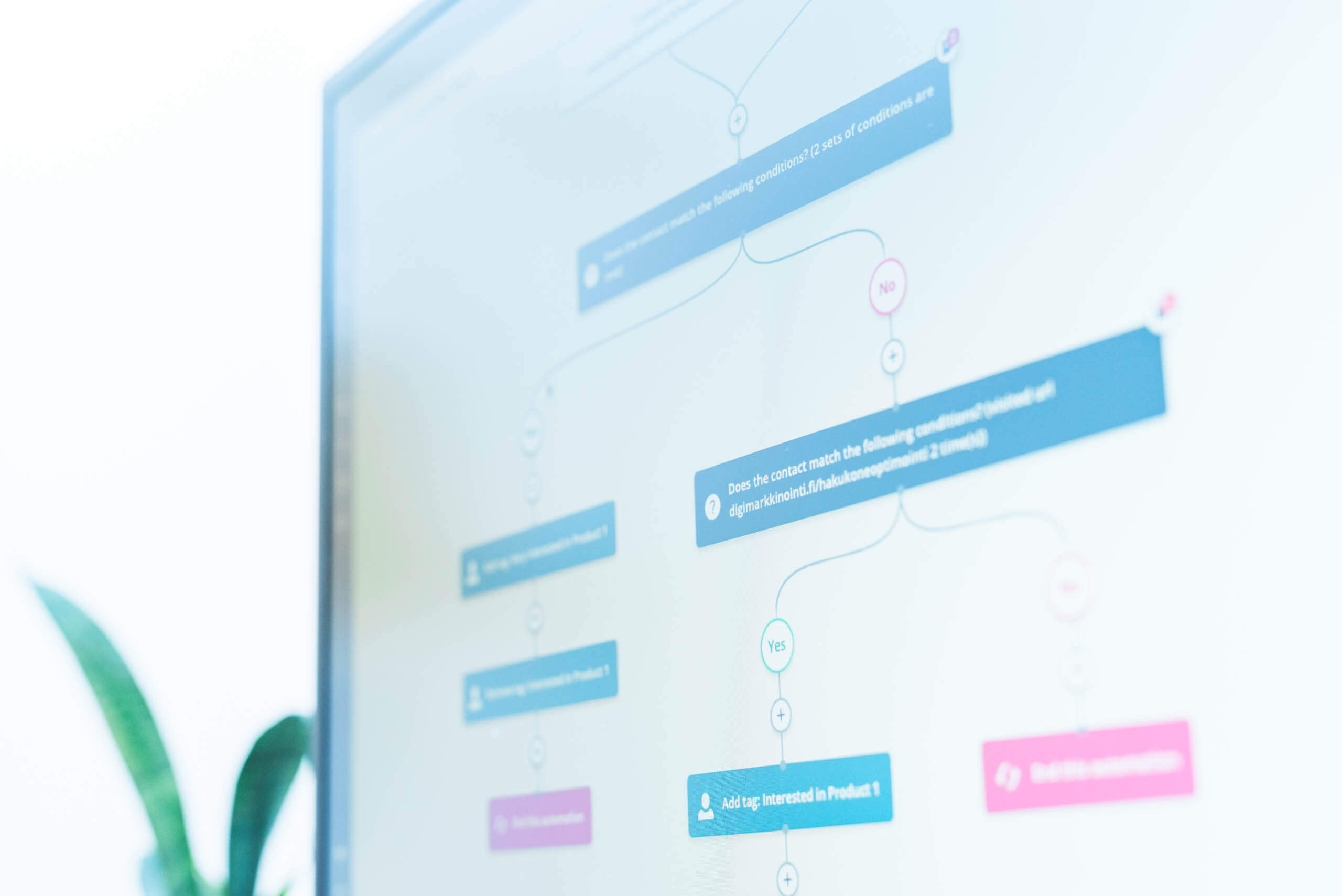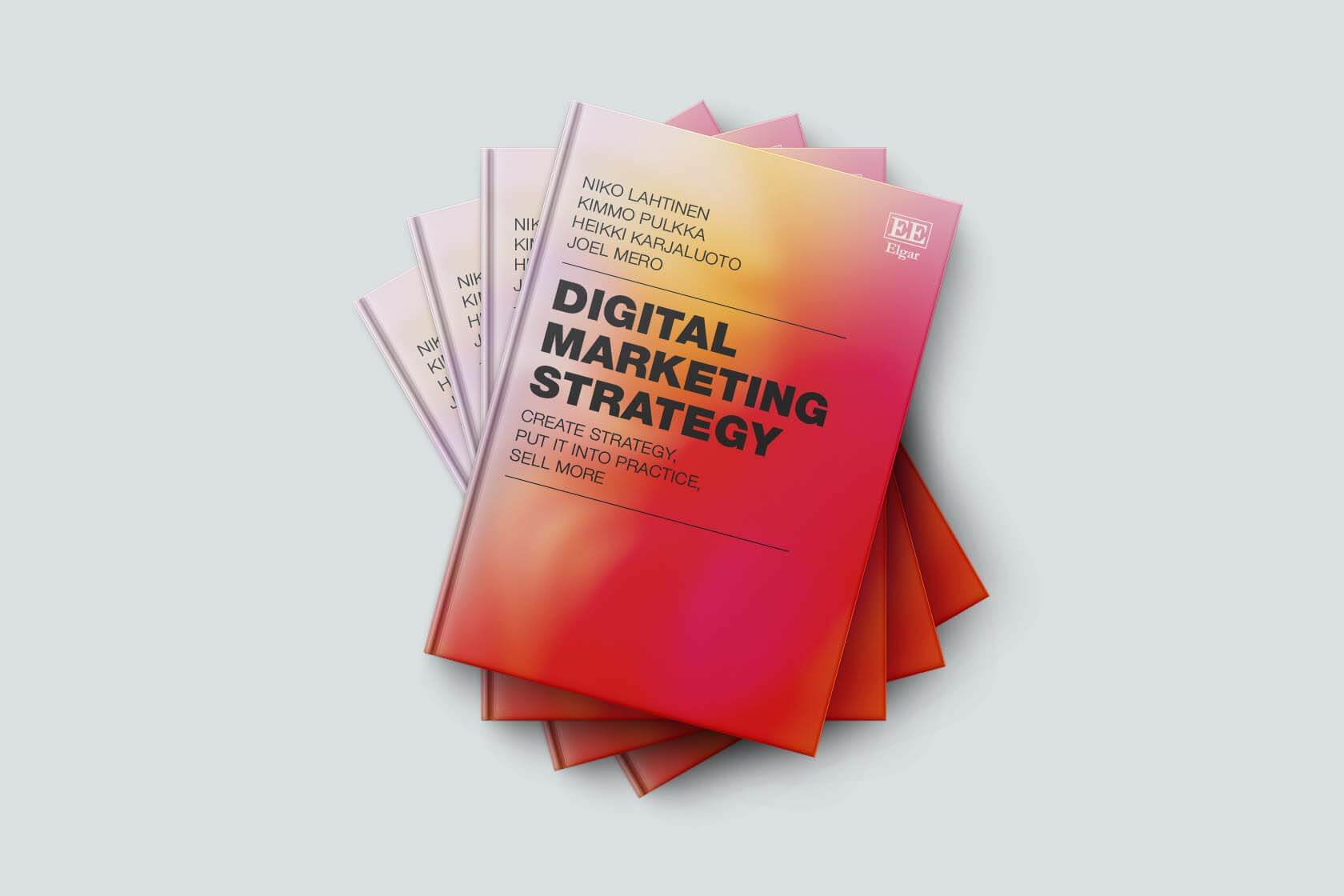What are the most important marketing tools for an online retailer? Email marketing.
What is the online retailer’s best friend? A long and well-deserved email list.
What is a free e-commerce marketing tool for an online retailer? Email marketing.
These are the themes discussed in this blog. Why? Pipecandy wrote in their blog: one of the three major trends in email marketing as personalization and smarter timeliness and platforms progress.
Just over a week ago, I went to coach about a dozen online retailers in Mikkeli. There were new online stores and one older already well-known Finnish brand, a product manufacturer, who were taking steps in digitalisation by also moving into the e-commerce business in addition to the brick-and-mortar and retail network. The coaching session was inspiring, at least from the coach’s point of view, and the feedback average was 0li 5.09 / 6.0, which means the audience also liked it.
In this blog post, inspired by that coaching, I go through the main points and perspectives on the excellence of email marketing, especially from the point of view of the online retailer. The same principles work more or less for non-online retailers when customizing them to their own needs.
How many mailing lists are you on?
This question always surprises the respondent when the results are properly rummaged through. Some hate, some like. An online retailer should be loved. It is no wonder that many good online retailers invest in collecting an email list and regularly implement it with a lot of input, both in terms of content and technology.
Personally, at least I have bought several times from the shopping cart online store that I had initially already abandoned, thanks to an email they sent. Several more times due to the discount. I have also bought a product that was out of stock, but I got a notification in my email when the product was back in stock, and I got a free home delivery when I ordered it right away. And those customers for whom we build an inbound machine, improve the results of e-commerce, or develop their digital marketing package and the value of their customers – is an important element in growing the email list and making the most of it.
Yes, we humans, consumers and decision-makers still want to be on the email lists. At the same time, we deliberately authorise marketing. And as Seth Godin put it well in the past: it is not a question of waiting for us to have permission to market or whether the licence has been obtained correctly in legal terms. It is about the recipient waiting for your message, like a monthly letter or a weekly message.
In our autumn 2018 online e-commerce magazine – Anna Salmi commented in the article ‘HOW DOES STOCKMANN STRENGTHEN ITS FOUNDATION FOR DIGITAL TRADING?’ Stockmann invests in e.g. email marketing. “This year we renewed our newsletter and entered the era of marketing automation. The results for the first six months are great. In order to operate, marketing automation must utilise customer data, so our path also began with the construction of the CRM system. If we wish, we can target the content of our messages very accurately to different target groups in the future. All of last year’s figures for newsletters, conversions and other metrics have been exceeded and I see that we are just beginning.”

Why email marketing?
For an online retailer, email marketing is simply the best marketing you can do if the size and quality of the recipients’ list is in order. That is why there are many ways to get and earn your email. And the most important thing is to earn it.
Email marketing is also virtually free. Often, managing smaller lists and sending an email is free across different platforms. As the list grows, a few dozen or, on a larger scale, a hundred or two a month may go into paying for email marketing software, but the ROI it brings will make you smile. Well-implemented e-mail marketing therefore requires, in practice, a high-quality mailing list as well as high-quality content. In addition, technical know-how is used by the right kind of software. Create a clear and functional action plan, create value for customers and earn customer email addresses.
Email marketing is not tied to marketing platforms such as Google or Facebook, on the contrary, email lists can be used to target dual audiences. It is also personal, identifiable, dynamic and once again: virtually free! Its measurability is easy and accurate. Bringing analytics, or traceability, to Facebook and Google in addition to Google Analytics and to measure campaign-specific success is conveniently done with UTM campaign parameters. The email list is therefore one of the most important set lists for an online retailer. Grow it, always. Of course, remember to also take advantage of it, always.

Image: http://rejoiner.com/resources/email-marketing-for-ecommerce/
What stage of marketing does it hit?

How to increase the number of recipients of an email list
- Interactive “order here” button
- Make typing an email address as easy and easy as possible
- Make sharing easy and encourage people to share their subscriptions and tell you about you -> make all sharing on different channels as easy as possible
- Minimize clicks
- Offer a benefit for new subscribers
- Offer the option with a different interval frequency
- LeadAds and other ways to subscribe to various social media channels
- Add exist-intet – pop-up. When a user seems to be leaving your site, a pop-up suggests, for example, joining the list
- Add subscription or listing options to multiple locations
- Provide them with a tool to use
- Downloadable content (guides, white papers, templates)
- This is the most important thing. Provide the customer with truly valuable content that they want and is willing to give their permission and intent to receive your messages.

A few (only 15+1) different types of email messages
What do you send to customers? Just spam? Or just offers? Do keyword research, get to know your customers, create different buyer personalities, segment, test and measure. Below are 15 different types of messages that you can use. The most important question for each message type is deciding what happens after you open the message. So, what is the objective and what is the next measure that we want to see happen. Continuous measurement, campaign identification and monitoring, testing and development are examples of this.
1) Browse Abandonment
A user who has stopped browsing and researching and who, so to speak, is window shopping, can be returned to your online store if the customer is identified, for example, from the email list. What were they looking at, how did they behave, and what was obviously interesting? Did they go to see the same hiking boots three times? Let’s start with that.
2) New Subscriber Welcome Series
Welcome to subscribe. What do we offer them that would benefit the new subscriber but also encourage purchase? What kind of online store or company are we? Why have we chosen these brands or responsibility as the main themes in our business? Let’s build trust, create a relationship and give an incentive to buy.
3) New Customer Welcome Series
Welcome to the buyer. Good luck with your first purchase. If necessary, create a series of messages, either based on the user’s behaviour or a general incentive to make it the most important second and third order. After that, the marketing euro that may have been invested in the first purchase, will only start to pay off in earnest. After all, the whole trick of an online store is to get recurring orders or new orders from the same customers, as they may do it for free without any marketing effort! Click – buy – repeat.
4) Cart Abandonment
Abandon a cart or product. We still like window shopping a lot in online stores and add everything we would like to buy in the shopping cart. Or if I bought three instead of one. In many cases, the purchase process is interrupted by either an interruption or poor user experience. What if we could send this collected shopping cart directly to the user in their email for purchase with a single click? Even with an incentive? This is the online retailer’s best friend from emails, and if the e-commerce platform and email marketing software work flawlessly together like Shopify + Klaviyo, then the possibilities are pretty much limitless.
5) Cross Sell / Up-Sell
The title says it all. You order a starter kit for the smart light system. With the discount, you will get another discount with an offer for an extra-led strip with videos of how much it would bring more to the living room closet above the tea kettle. Bought.
6) VIP
Become a VIP member. You get these and these benefits. Regularity, frequency, prior knowledge, insiders, special discounts.
7) Replenishment
Reordering. As is the most common example in contact lenses. On average, the 30-day disposable lens package has a lifespan of 45-60 days. What if at that time the shopping cart of the previous order came to your email with the incentive to reorder the set? The necessary and well-made product is a click away. Will you buy it?
8) Win Back / Defection
It is a good idea to reactivate a customer whose behaviour or activity begins to appear that there have been no purchases or visits to the site for a while. At this point, the customer should be given an offer which they cannot refuse, or some other throw-in product or content so attractive that your online store will start to interest them again. Again, this is fully automated.
9) Curation
Reuse of previous good campaigns or content that proved to be working. “And curation is not just about using existing material. A good curator also creates new content that will give existing content a new kind of light.” – I think someone wise might have said.
10) Participatory and reactivating
Engagement. Only your imagination is the limit. As pictured earlier, Nokian Tyres did when I bought tires from them this winter.
11) Discount / Campaigns
I do not think there is any need for clarification. What if you did this based on what I have browsed before? In many cases, it is good to brand larger campaigns with an attractive name and to constantly remind you that the campaign exists. This is a proven way in the supermarket world: Crazy Days, Euro Days, Mammoth Market, etc.
12) Survey / Feedback
“The truth comes from the customer.” From feedback, we live and develop. Ask it. Cherish it. If a person buys a winter coat in the middle of winter, you should ask for feedback within a week of receiving the jacket. This too can be automated.
13) Thank you / Appreciation
In general, thanking the customer, remembering and bringing this importance to the online store is also important. Not just by spamming but again by generating value.
14) Confirmation + additional treats
One of the most important features when ordering on Amazon.com or iHerb.com, for example, has been the immediate information of what point the order is at. Confirmation. Transmission. En route. Arrived at the Finnish Post Office. That track. It is also a good idea to bring other elements on how to get the user back to your online store.
15) Recommend / Recommendations
It is no coincidence why Booking.com, Wolt, etc. try to impose discounts and euros on the recipient of the message if they recommend their service or product. It will have a huge impact if your friend recommends any service or app to you.
+1) Dynamic discount codes
And one more example on top of the trade. And this email usually generates euros. Trade. An online retailer compared this to gold panning in Lapland. Dynamic discount codes. For example, the user examines the fly-fishing set. Carefully reads reviews and compares several different types. Several times. Add up to one to the cart but does not buy. Send them a unique personal discount code for this particular product they are viewing. For example, free home delivery or a discount in euros. At least they have taken the bait.
Well, those are a few examples and an idea. And there is plenty of these when you look into it. And there is an infinite amount of content on this topic, even of high quality, online, both on YouTube and in text format. More of what we have produced can be found in some more detail on the topic here:

Mailchimp, ActiveCampaign and Klaviyo – email marketing software
It is important to choose the right and suitable email program for your needs. What is right and appropriate? The factors influencing this include the size of the list, the possibility of A/B testing, the possibilities of using automation, integration opportunities, event-based automation triggers, dynamic content, and the management and optimisation of email drivers and recipient lists. Especially with to e-commerce, it is important that the e-mail program “chats” with the online store. Here are some of the most common and, in our experience, the most popular software used and specialized in email marketing.
Mailchimp – one of the most used and easy to use software. Especially suitable for starting at a price.
Active Campaign – a particularly good choice even when there is a need to create integration between CRM. It is also very easy to do various automations and message sequences. Read our blog on ActiveCampaign’s 101 cross-section.
Klaviyo – the best friend of the online retailer. Especially with Shopify and similar e-commerce platforms, full integration is gratifying. The most important feature is safe the basket – type e-mail automation construction. In general, building automations based on trigger-based functionalities in e-commerce is an extremely effective way to use email marketing to increase e-commerce sales.










